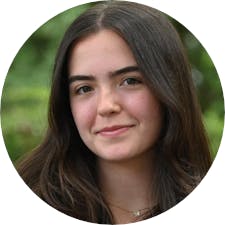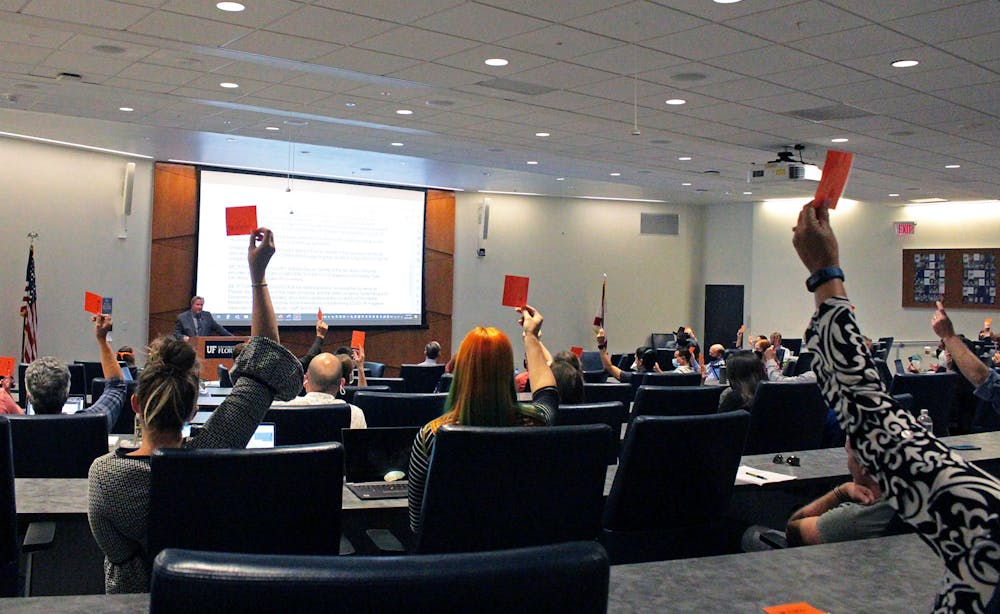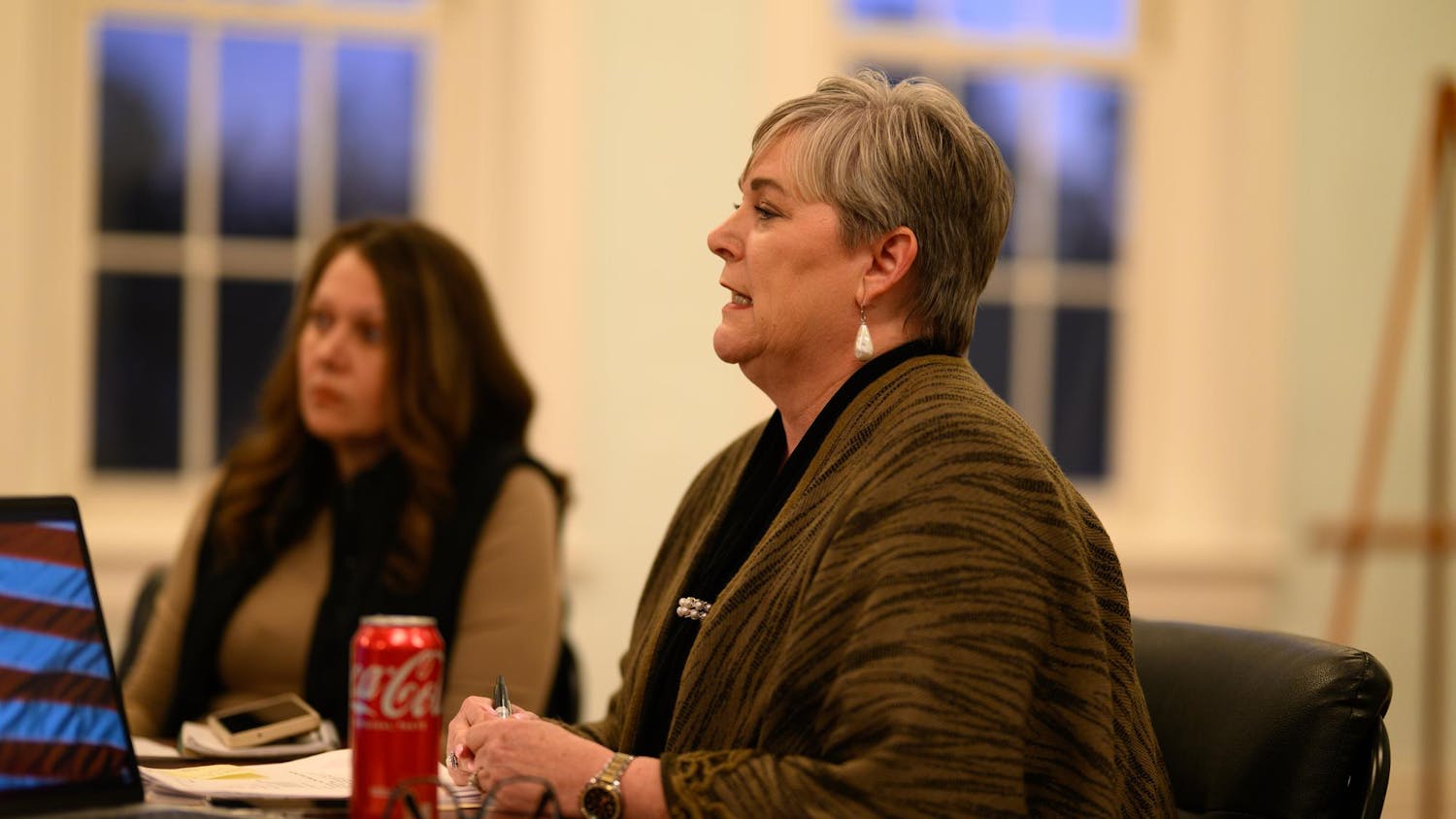Since his confirmation as UF’s interim president, Dr. Donald Landry has told university faculty to remain neutral during turbulent times. Following last month’s Faculty Senate meeting, Landry revived the discussion of institutional neutrality Thursday.
Landry said he met with every UF dean and college leadership prior to this month’s Senate presentation, and he wished to show, “in the spirit of shared governance,” the idea faculty is part of leadership and thus responsible for maintaining institutional neutrality.
“Are you advocates, or are you scholars?” he said. “Are you here to educate, or are you here to persuade?”
The neutrality initiative, he said, would ask leadership to relinquish its expression of opinions to encourage the speech of faculty and students.
Landry said the faculty’s job is to give information they believe to be true while allowing for the possibility that they’re wrong.
Institutional neutrality doesn’t mean instructors won’t be able to exercise their expertises, he said, and he’ll defend their rights to do so. But, he said, they shouldn’t adopt an advocacy role.
Landry said he has discussed the neutrality policy with Florida Board of Governors Chancellor Ray Rodrigues. The chancellor, Landry said, is prepared to discuss the situation with Senate representatives to understand the faculty’s opinions.
“We can have conversations, we don’t have to be so afraid that we have to be constantly persuading,” he said.
Faculty Senators expressed concern over the neutrality policy. One member, Carolyn Holland of the College of Medicine, said Landry is asking faculty to be silenced.
The interim president appeared flustered as faculty backlash persisted, talking over some senators and letting one “have the last word.” Landry left the meeting in a hurry before one member could finish their statement.
Kevin Goldberg, vice president of the Freedom Forum, said institutional neutrality, in its “classic sense,” is not an infringement of First Amendment rights. Goldberg said institutional neutrality is not uncommon, and over 50 universities in the nation have adopted the principle.
Goldberg said government employees are considered private employees, meaning universities may discipline faculty and leadership who represent the school for speaking on undesirable issues.
The main concern, he said, is if the person is speaking in the capacity that might be attributed to the university or in a private capacity. For private matters, employees would receive First Amendment protections. On behalf of the university, they would not.
He added First Amendment concerns may arise from the implementation of the initiative, but not the initiative itself. It would cross the line, he said, if there were an attempt to stop a professor from teaching concrete facts.
“As long as professors are expressing their personal opinions on their personal time, they should be fine,” he said.
Visa measures and program changes
Faculty Senate Chair Luisa Amelia Dempere shared in her monthly report that at a recent Board of Governors meeting she and her fellow Senate Chairs urged the Board to “please look at the data” for H-1B visas very carefully before making any decisions.
At an October press conference, Gov. Ron DeSantis directed the Board of Governors to pull back on H-1B visa hirings at Florida universities. At the conference, Landry said he approved a review of the visas, adding H-1B “is not handled in a pristine fashion.”
There might be one or two cases where visas were used inappropriately, Dempere said, but the vast majority of people hired under the status are “here because they are the best.”
“We want to have the best people here working with us,” she said.
She added the Board of Governors promised to review the data in January.
The Graduate Council also addressed on Thursday an initiative to dissolve the UF/IFAS Environmental Horticulture Department. The department’s 30 faculty members voted on the dissolution, and 26 agreed with the move.
The IFAS Horticulture Department’s mission is to preserve the environment and natural landscapes through plants, and it offers both an undergraduate plant science major and a graduate environmental horticulture program.
No employees will be laid off. Instead, faculty, staff and other employees will transition to one of the four additional IFAS departments. Where they end up, the proposal says, is up to the individual, “essentially embedding them with teams whose expertise aligns with theirs.”
“This administrative evolution will better serve faculty, staff, students and stakeholders in key ways,” the resolution said.
Students will also benefit from the change, the proposal said. By incorporating horticulture classes into other catalogs, the dissolution may offer a gateway for students who otherwise may not have interacted with the field, thus potentially “sparking more passion” for it.
The Graduate Council also presented a request to eliminate the Doctor of Education program with a major in counseling and counselor education program and its concentrations, citing a lack of student interest as the reason.
Since the program’s creation, the proposal said, no students have enrolled in it. Instead, students have selected the Doctor of Philosophy with a major in counseling and counselor education program, which will remain unchanged.
Faculty voted in approval of the change in Fall 2024, according to the request, and no faculty appointments will be changed as all individuals also work for the Ph.D. program.
The council additionally proposed the closure of the communication sciences and disorders, or CDS, doctoral program.
The program will be terminated and phased out in Fall 2025. There’ll be no impact on enrollment, as no students or faculty are currently active in the program, per the request.
Contact Maria Arruda at marruda@alligator.org. Follow her on X at @mariazalfarruda.

Maria Arruda is a second-year journalism and political science student, currently working as the City Commission reporter for The Alligator. Previously, she reported on Student Government under The Alligator's University desk. She enjoys running, reading and going to movie theaters!






